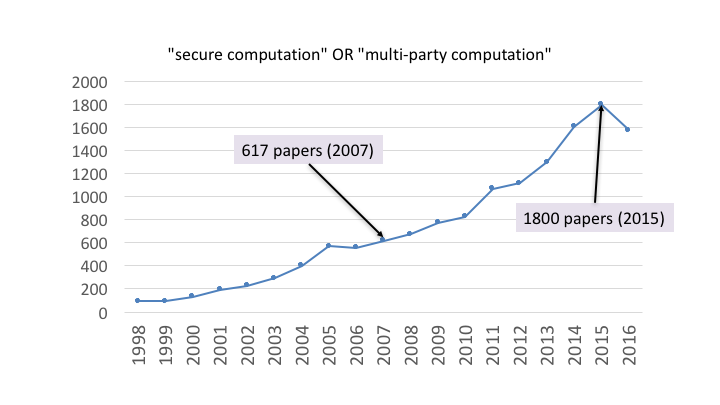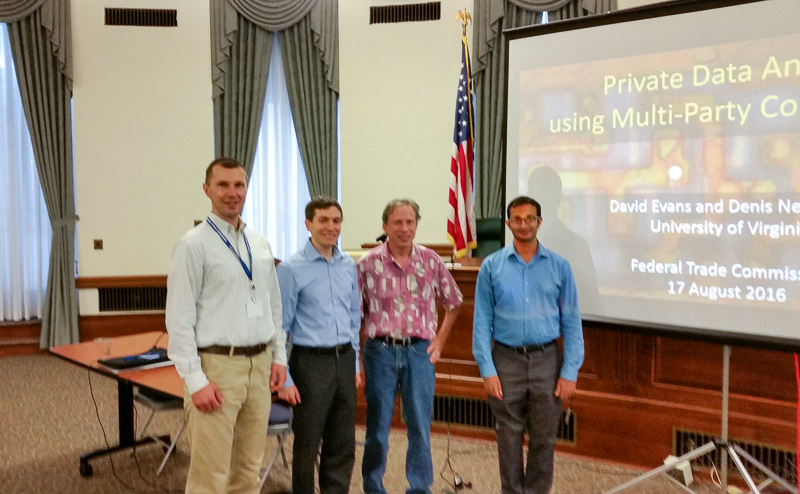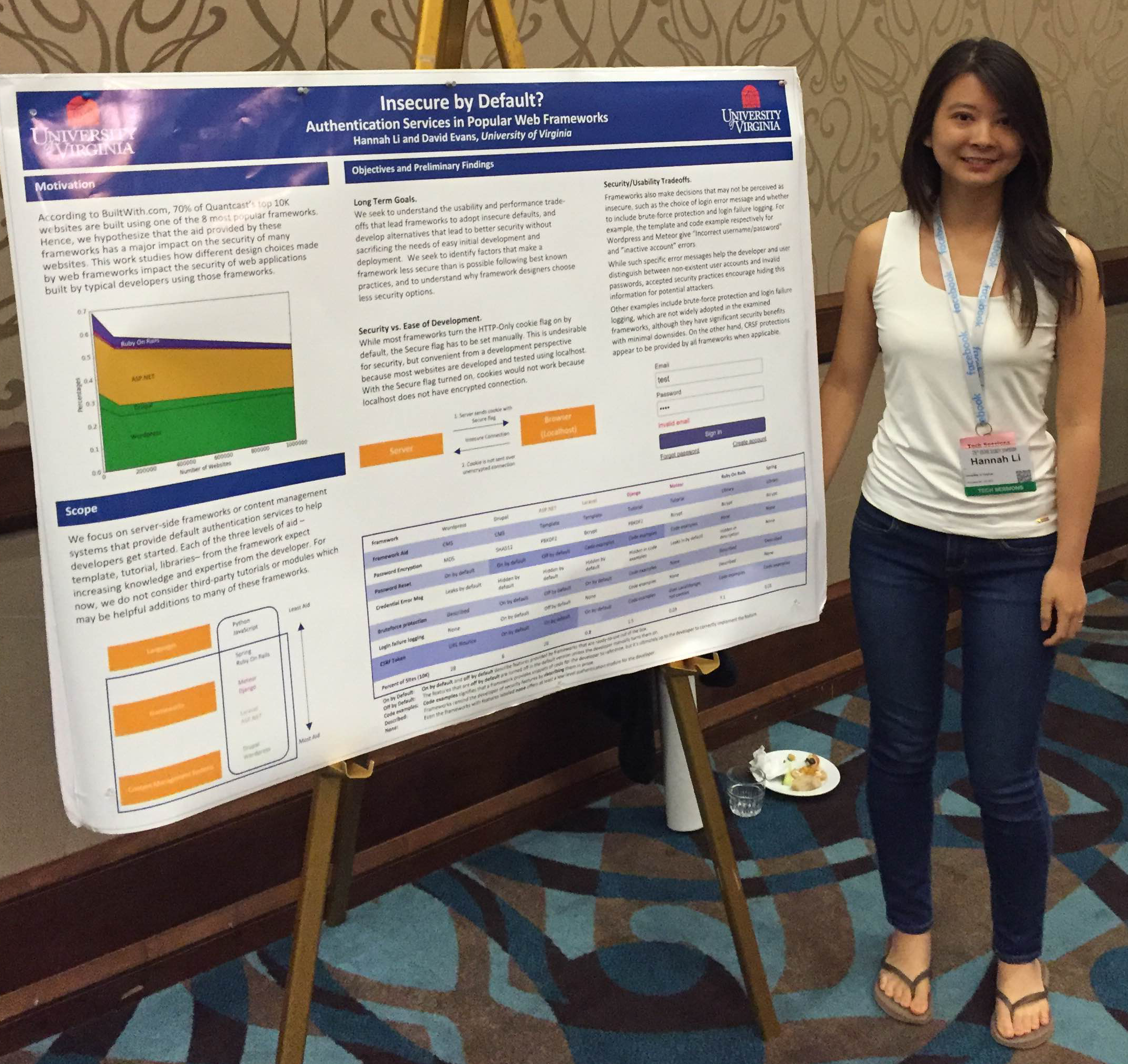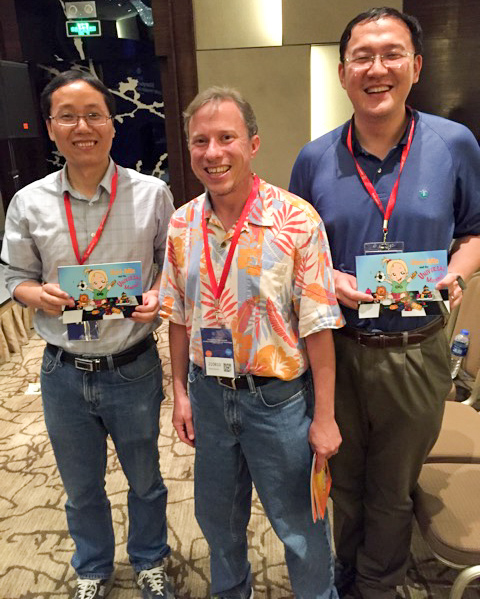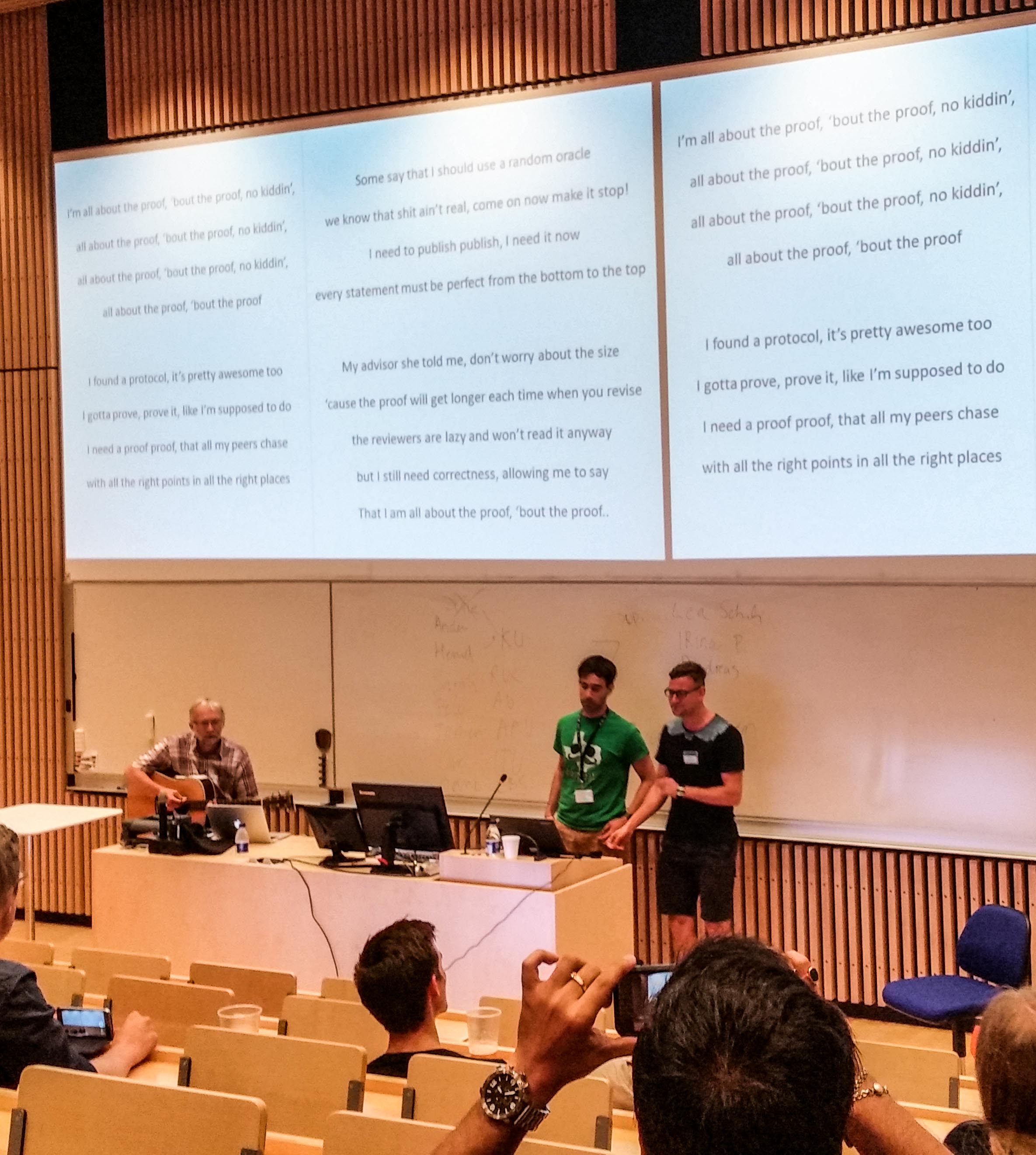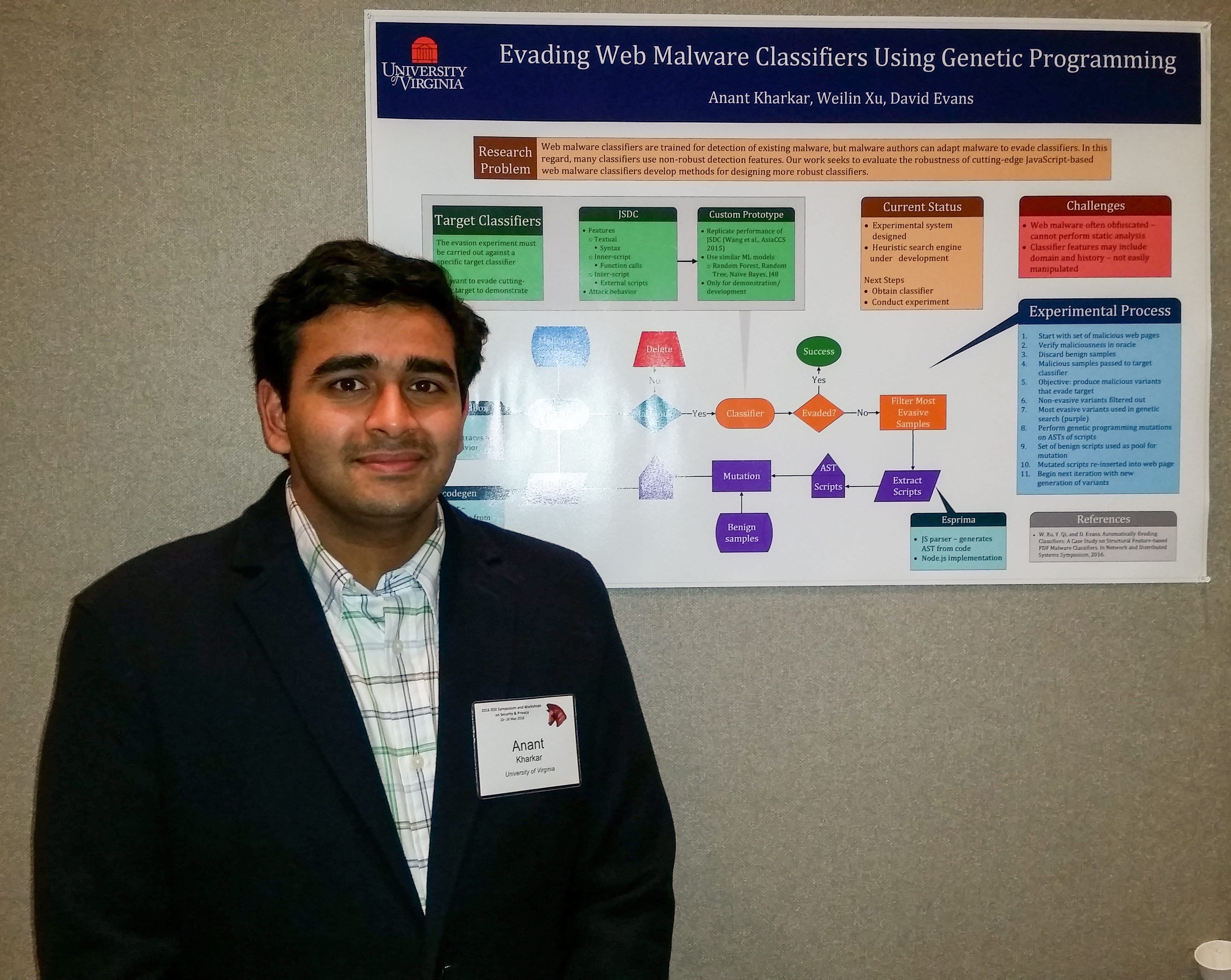Our paper on secure stable matching is now available [PDF, 12 pages]:
Jack Doerner, David Evans, abhi shelat. Secure Stable Matching at Scale. 23rd ACM Conference on Computer and Communications Security (CCS). Vienna, Austria. 24-28 October 2016.
See the OblivC.org site for the code and data. Jack Doerner will present the paper at CCS in October.
Abstract
When a group of individuals and organizations wish to compute a stable matching — for example, when medical students are matched to medical residency programs — they often outsource the computation to a trusted arbiter to preserve the privacy of participants’ preference rankings. Secure multi-party computation presents an alternative that offers the possibility of private matching processes that do not rely on any common trusted third party. However, stable matching algorithms are computationally intensive and involve complex data-dependent memory access patterns, so they have previously been considered infeasible for execution in a secure multiparty context on non-trivial inputs.
We adapt the classic Gale-Shapley algorithm for use in such a context, and show experimentally that our modifications yield a lower asymptotic complexity and more than an order of magnitude in practical cost improvement over previous techniques. Our main insights are to design new oblivious data structures that exploit the properties of the matching algorithms. We then apply our secure computation techniques to the instability chaining algorithm of Roth and Peranson, currently in use by the National Resident Matching Program. The resulting algorithm is efficient enough to be useful at the scale required for matching medical residents nationwide, taking just over 17 hours to complete an execution simulating the 2016 NRMP match with more than 35,000 participants and 30,000 residency slots.
